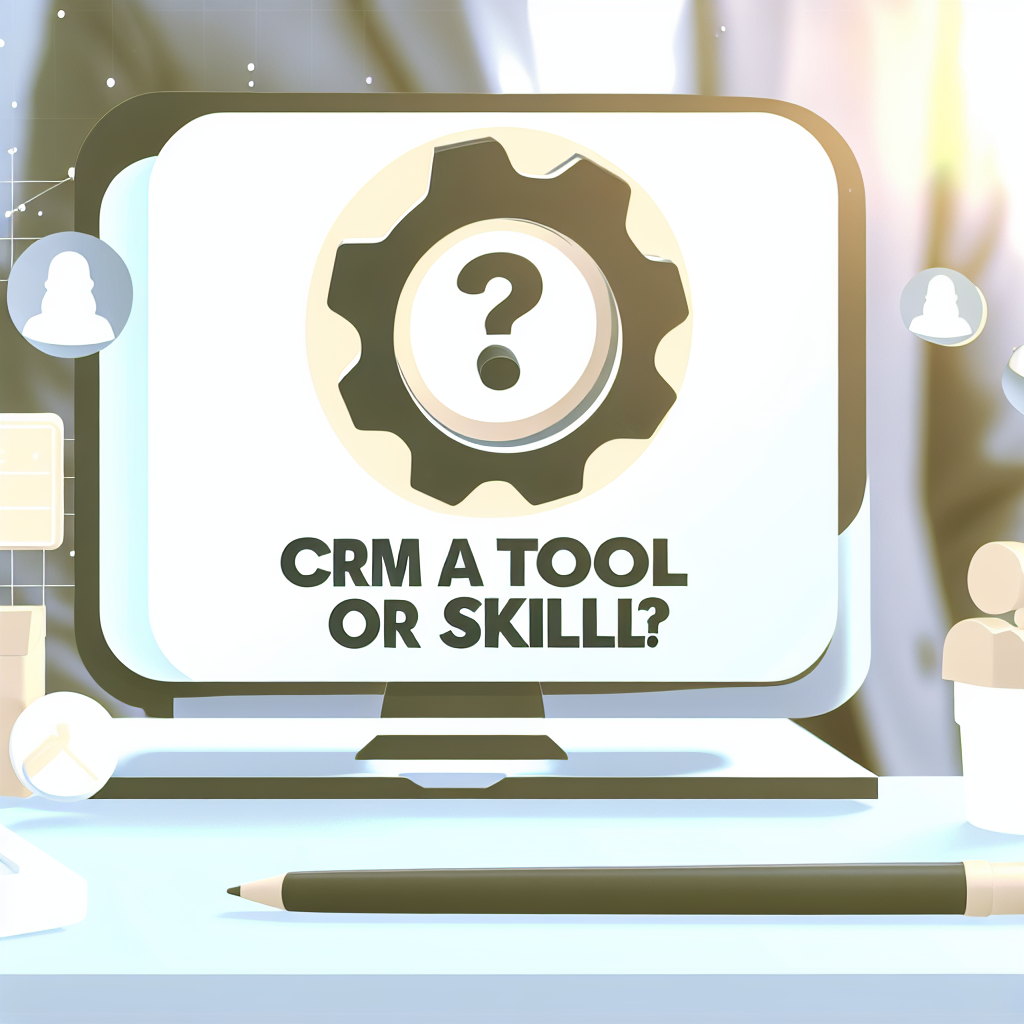
In the patchwork of today’s business landscape, the way organisations manage customer relationships is critical. As Human Resource professionals, understanding the dual nature of Customer Relationship Management (CRM) is essential, not just for enhancing customer interactions but also for refining talent acquisition and employee relations. In this post, we explore CRM as both a tool and a skill, assessing its implications and benefits for your HR strategy.
Understanding CRM
At its core, CRM refers to practices, strategies, and technologies that organisations employ to manage their interactions with potential and current customers. However, CRM transcends being a mere software solution; it embodies a mindset that can redefine customer service and sales across an organisation.
CRM as a Tool
When we talk about CRM in terms of tools, we are referring to software designed to manage an organisation’s relationships and interactions. This software provides comprehensive support in several areas, including:
- Data Management: CRM tools excel at organizing and analysing customer data, facilitating personalised marketing and sales strategies.
- Automation: Routine tasks such as data entry and follow-ups can be automated, enabling sales and marketing professionals to focus more on fostering relationships rather than drowning in administrative duties.
- Integration: Many CRM platforms seamlessly integrate with other business systems, enhancing operational efficiency across departments.
This functional aspect of CRM is pivotal for coordinating efforts amongst teams and ensures that customer interactions remain centralised.
Key Benefits of Using CRM Tools
Here are some key advantages that come with adopting CRM tools in your organisation:
- Informed Decision-Making: CRM tools collect and analyze data that can drive strategic marketing and sales decisions.
- Enhanced Customer Engagement: With better insights into customer preferences, organisations can tailor communications and offers effectively.
- Improved Collaboration: By integrating all customer interactions into one platform, teams enjoy a unified view that promotes collaboration.
Current Trends in CRM
As we venture further into 2024, the landscape of CRM tools continues to evolve. Here are pivotal trends shaping the market:
- Cloud-Based Solutions: The shift towards cloud computing means many CRM platforms are now offered as cloud services, providing scalability and flexibility.
- Artificial Intelligence (AI) and Machine Learning (ML): Modern CRM tools leverage AI and ML to offer predictive analytics, helping teams automate workflows and optimise customer interactions.
CRM as a Skill
While CRM tools enhance processes, the skill sets associated with effectively managing customer relationships are equally vital. Skilled CRM practitioners embody a range of competencies that can profoundly impact organisational success.
Core CRM Skill Sets
- Understanding Customer Needs: Skilled professionals can discern what customers want, facilitating more meaningful interactions.
- Building Relationships: The ability to develop long-term relationships with clients is crucial for sustained business success.
- Data-Driven Strategy: Skilled individuals use insights derived from customer data to refine marketing and sales strategies.
Key Benefits of CRM Skills
Integrating these skills within your HR approach can yield significant advantages:
- Enhanced Customer-Centric Culture: Fostering a customer-centric mindset across teams can enhance customer satisfaction and loyalty.
- Informed Strategy Development: Analyzing customer interactions empowers better strategic decisions.
- Optimised Resource Allocation: Skilled practitioners efficiently allocate resources based on customer insights, leading to optimal performance.
The Synergy of CRM Tools and Skills
Combining the technical aspects of CRM tools with essential CRM skills creates a powerful synergy that significantly enhances organisational capabilities.
Key Benefits of Integrating Both Elements
- Improved Customer Insights: A balanced approach ensures comprehensive analysis of customer behaviours and preferences, facilitating more effective marketing strategies.
- Enhanced Customer Experience: Personalised service and targeted marketing lead to superior customer experiences, elevating overall satisfaction.
- Increased Operational Efficiency: Automating repetitive tasks allows teams to devote their energies to relationship-building and strategic initiatives.
Implementing CRM in Your HR Strategy
As HR professionals, integrating CRM principles into your strategies can enhance both customer interactions and workforce management. Here are steps to consider:
- Leverage CRM Tools: Adopt suitable CRM software that aligns with your organisational needs, focusing on features such as analytics and customer insights.
- Build CRM Skills: Invest in training programmes for your staff to enhance their ability to manage customer relationships effectively.
- Promote a Customer-Centric Culture: Encourage collaboration across departments to ensure that customer feedback informs every aspect of the organisation.
- Analyse Performance: Regularly assess the impact of CRM strategies on customer satisfaction and employee performance, making data-driven adjustments as necessary.
Looking Ahead: Future CRM Trends to Watch
As we analyse evolving trends, the future of CRM includes:
- Hyper-Personalisation: Companies will increasingly focus on delivering experiences tailored to individual preferences.
- Augmented and Virtual Reality Integrations: The utilisation of AR and VR can enhance customer engagement, creating immersive experiences.
- Enhanced Security Measures: With the rise of data privacy concerns, maintaining robust security protocols in CRM systems will be paramount.
In conclusion, the dual nature of CRM as both a tool and a skill presents significant opportunities for HR professionals. By embracing both aspects, organisations can improve customer insights, enhance the customer experience, and drive strategic decision-making. A focus on these components will not only enhance customer satisfaction but also foster a thriving workplace culture that understands and values the customer journey.
References:
Vadim Kouznetsov is a distinguished entrepreneur and the visionary founder and CEO of JobXDubai.com, the UAE’s rapidly expanding job board. Renowned for his expertise in bridging the gap between job seekers and employment opportunities, Vadim has become a leading authority in the recruitment and job market of Dubai.
